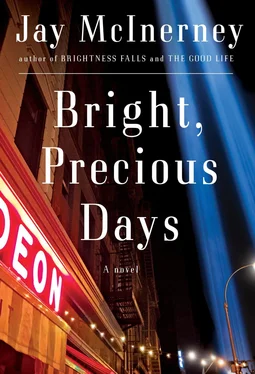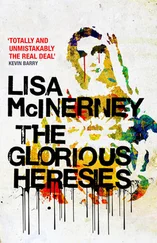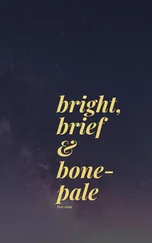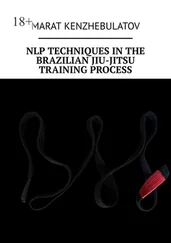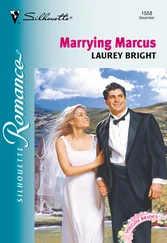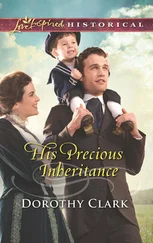The more he thought about it, the more he found the prospect frightening, and thrilling.
Reappearing after a short absence, Tom said, “It’s all arranged.” He reached across the table and put a yellow pill down in front of Russell.
“What’s this?”
“Cialis,” he said. “Let’s face it, we’ve had a lot to drink and we’re not twenty anymore.”
Even as he swallowed the pill, Russell wasn’t certain if he could go through with this.
When the bill arrived, Tom waved off his tentative hand and slapped down his black American Express Centurion card, the one reserved for cardholders who spent more than a million a year, which clanked like real currency against the silver metal tray cradling the innocent-looking slip of paper that itemized the staggering tab.
A black Lincoln Town Car was waiting for them outside. Tom gave the driver an address on East 73rd. Russell couldn’t quite believe he was doing this. He kept thinking that he should ask the driver to stop, tell Tom that he’d changed his mind. It was crazy. He couldn’t do this. But the car wafted uptown on Madison, and Tom kept talking about how hot the girls were.
“Don’t you worry about the place getting busted?”
“The madam’s married to a cop in the Tenth precinct and she has everybody paid off all the way up the line.”
They pulled to the curb in front of a somewhat drab brownstone in the middle of the block. Two Town Cars, identical to their own, were idling there already. And it occurred to Russell that just as he’d begun to question his own faith in the inexhaustible mystery of the city, he was being initiated into a new corner of it. For as long as he’d lived here, apparently there were parts of it he still wasn’t aware of — unknown universes behind closed doors, new republics around the corner and up the block, all awaiting discovery.
They ascended the steps and Tom rang the buzzer, which was presently answered by a slim middle-aged blonde in a maroon kaftan, whom he introduced to Russell. Gretchen had the lined, leathery face of a heavy smoker and looked very much like the chatelaine of an Upper East Side town house, accepting a kiss on the cheek from Tom and leading them into a front parlor that was redolent of cigarette and cigar smoke, which failed to mask the tang of mildew. It was furnished haphazardly with sofas and chairs upholstered in disparate fabrics, like the living room of a second-rate sorority house. Framed etchings of scenes from mythology hung on either side of the fireplace, the busiest of which appeared to depict the rape of the Sabine women, but most of the walls were bare, showing veins of cracked plaster and peeling paint. Russell had been expecting something more tasteful and expensive, or far tackier, whereas this was merely drab.
A slender redheaded beauty appeared in the doorway, draped in a blue silk robe. Tom lit up as she glided across the room and embraced him; obviously they were well acquainted.
“I’m afraid I don’t know anything about your friend’s tastes,” Gretchen said as she turned from Tom to Russell, who felt his heart pounding in his chest, “But I think you’ll be very pleased with your date,” she said, taking his right hand and rubbing it between her palms. “In fact, here’s Tanya now.”
Russell turned and saw, framed in the arched doorway, wearing a leopard print robe, his sister-in-law, Hilary.
CORRINE WAS ALREADY LATE when she arrived at the Grand Concourse and 149th Street, having just missed her subway after dropping the kids at school, shouting for someone to hold the door and watching as the train pulled away, the man with the stupid hat with earflaps staring at her moronically with his arms pinned to his sides. After waiting fifteen minutes for the next train, she found herself fighting a headwind on 149th Street, and she was half an hour late by the time she turned onto Morris Avenue.
The line of clients — so they called them — stretched from the parking lot back around the corner some fifty deep up the avenue, supplicants in parkas and fleeces, ski caps and babushkas and African head wraps — tropical splashes of color against the drab pregreen cityscape, the scene reminding her of the view outside her mother’s kitchen window on a winter morning, blue jays and cardinals and towhees clustered around the bird feeder. One man wore a bright orange vest and cap, as if he’d just come from an early-morning deer hunt; another was in full army camo, skulking near the back of the line.
The orientation meeting was just breaking up, the volunteers scattering to their stations, Luke McGavock among them, so out of context that for a moment she didn’t even register the surprise. She hadn’t spoken to him for a week, and it had been two months since she’d laid eyes on him. She was taken aback, after these long intervals, by her reaction to his presence, by the quickening of her metabolism, a kind of mental flush that made her feel simultaneously light-headed and keenly focused. She could go for days without thinking of him, and after a time she could imagine that seeing him wouldn’t affect her. He was dressed down in jeans and fleece. Catching sight of her, he stopped in the middle of the parking lot, shrugging his shoulders and flashing a rueful, boyish grin. Sometimes the things we love most in our adored ones can become, like that grin, the things we hold against them. She kissed him as she would a friend — on the cheek. He was freshly shaven, and her resolve to be businesslike was eroded by the scent of his skin.
“I was afraid you might not show up,” he said.
“In other words, you didn’t come here out of the goodness of your heart to help distribute food to the needy.”
“My motives weren’t entirely pure. Mixed would be the charitable way to describe them. But I think motives are usually mixed, don’t you?”
“I’m not sure if you thought this was a good time to catch up, but I have three hours of work ahead of me here.”
“I understand and I’m here to help. I’m on carrots today.”
“An important station. If anyone asks, tell them that beta-carotene is partly metabolized into vitamin A, which can improve vision, though it won’t enable you to see in the dark. That was a rumor started by the RAF during World War I, disinformation to disguise why their pilots were shooting down so many German planes at night. The cover story was that it was due to high carrot consumption among the gunners, when in fact it had to do with the development of radar.”
She realized she was babbling out of nervousness, which must have been painfully obvious.
He was looking at her fondly, as if she were a familiar, harmless lunatic.
“When did you get back?” she asked.
“A few days ago. I thought maybe we could have lunch after we finish up here.”
“It’s possible. Let’s see how the morning goes.”
“Well, you know where to find me,” he said, jogging off to his station.
For once, their supplies held out till the end and the morning passed without incident. Corrine was painfully aware of Luke’s presence, even as she tried to pretend she wasn’t; if anything, she visited the carrot tent less often than the others. Luke seemed to be performing his duties cheerfully and efficiently, getting along well with the women working alongside him, at least one of whom was annoyingly attractive.
“So, I assume you have a car?” she asked him after she’d finished her duties.
He shook his head.
“You took the subway?”
“No, but I let the car go. It seemed sort of, I don’t know, it just didn’t seem quite right having a Town Car standing by for three or four hours while I handed out carrots at a housing project.”
On the one hand, she gave him credit for his decency; on the other, she’d been looking forward to a ride downtown. She was getting a little weary of trying to live within her means. “I guess we’re taking the subway. It’s a kind of underground train.”
Читать дальше
